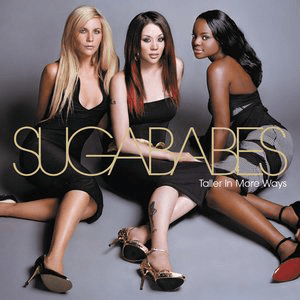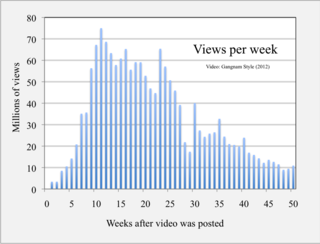
"Haddocks' Eyes" is the nickname of the name of a song sung by The White Knight from Lewis Carroll's 1871 novel Through the Looking-Glass, chapter VIII.

A songwriter is a musician who professionally composes musical compositions or writes lyrics for songs, or both. The writer of the music for a song can be called a composer, although this term tends to be used mainly in the classical music genre and film scoring. A songwriter who mainly writes the lyrics for a song is referred to as a lyricist. The pressure from the music industry to produce popular hits means that song writing is often an activity for which the tasks are distributed among a number of people. For example, a songwriter who excels at writing lyrics might be paired with a songwriter with the task of creating original melodies. Pop songs may be composed by group members from the band or by staff writers – songwriters directly employed by music publishers. Some songwriters serve as their own music publishers, while others have external publishers.
Paul Francis Webster was an American lyricist who won three Academy Awards for Best Original Song, and was nominated sixteen times for the award.

Taller in More Ways is the fourth studio album by British girl group Sugababes, released by Island Records on 10 October 2005. It was primarily produced by Dallas Austin and Jony Rockstar, with additional production from Cameron McVey, Xenomania and Guy Sigsworth. The title of the album was inspired by a line in the album's second single, "Ugly".
Shuffling is a procedure used to randomize a deck of playing cards.

"Separate Ways (Worlds Apart)" is a song performed by Journey, recorded for their album Frontiers and released as a single on January 5, 1983. It peaked at number eight for six consecutive weeks on the Billboard Hot 100 chart, and spent four weeks at number one on the Top Tracks chart. The song is also well known for its use in the film Tron: Legacy and in season four of Stranger Things.

A viral video is a video that becomes popular through a viral process of Internet sharing, typically through video sharing websites such as YouTube as well as social media and email. For a video to be shareable or spreadable, it must focus on the social logics and cultural practices that have enabled and popularized these new platforms.

"I Belong to You" is a song by American singer Toni Braxton. It was written by Vassal Benford and Ronald Spearman for her eponymous debut studio album (1993), while production was helmed by the former. The song was released as the album's fifth and final single on June 10, 1994 by LaFace and Arista Records, a double A side along with "How Many Ways." While there was no accompanying music video for "I Belong to You", the song garnered Braxton a nomination for Best Female R&B Vocal Performance at the 1996 Grammy Awards. It peaked at number 28 on the Billboard Hot 100 on January 21, 1995.

"How Many Ways" is a song by American singer Toni Braxton. It was written by Braxton, Vincent Herbert, Philip Field, Ben Garrison, Keith Miller, and Noel Goring for her self-titled debut album (1993), while production was helmed by Herbert. The song is built around a sample of "God Make Me Funky" (1975) by American jazz-fusion band The Headhunters featuring Pointer Sisters. Due to the inclusion of the sample, several other writers are credited as songwriters. Lyrically, the protagonist of the composition declares there are many ways in which she loves her man.
"Milk Cow Blues" is a blues song written and originally recorded by Kokomo Arnold in September 1934. In 1935 and 1936, he recorded four sequels designated "Milk Cow Blues No. 2" through No. 5. The song made Arnold a star, and was widely adapted by artists in the blues, Western swing and rock idioms.
"Gotta Be You" is a song by English girl group Sugababes from their fourth studio album, Taller in More Ways (2005). It was written by Tricky Stewart, Penelope Magnet and Terius Nash, while Dallas Austin produced the song. There are two versions of the song, one with vocals by founding member Mutya Buena, and another featuring Amelle Berrabah's vocals, Buena's replacement. "Gotta Be You" is a crunk&B song that lyrically discuss reacting to judgements created by the media. Several music critics noted similarities between the song and "Try Again" by Aaliyah. Upon the release of the album, "Gotta Be You" garnered mixed reviews from critics.
"How do I love thee, let me count the ways" is a line from the 43rd sonnet of Sonnets from the Portuguese, a collection of 44 love sonnets written by Elizabeth Barrett Browning.

AsapScience, stylized as AsapSCIENCE, is a YouTube channel created by Canadian YouTubers Mitchell Moffit and Gregory Brown. The channel produces weekly videos that touch on many different topics of science.
Feminist activism in hip hop is a feminist movement based by hip hop artists. The activism movement involves doing work in graffiti, break dancing, and hip hop music. Hip hop has a history of being a genre that sexually objectifies and disrespects women ranging from the usage of video vixens to explicit rap lyrics. Within the subcultures of graffiti and breakdancing, sexism is more evident through the lack of representation of women participants. In a genre notorious for its sexualization of women, feminist groups and individual artists who identify as feminists have sought to change the perception and commodification of women in hip hop. This is also rooted in cultural implications of misogyny in rap music.

"How Many Times" is the third single by from DJ Khaled's eighth studio album I Changed a Lot (2015). It features Chris Brown, Lil Wayne and Big Sean, and was released on May 12, 2015.
Music in the plays of William Shakespeare includes both music incidental to the plot, as song and dance, and also additional supplied both by Shakespeare's own company and subsequent performers. This music is distinct from musical settings of Shakespeare's sonnets by later composers.

Rough and Rowdy Ways is the 39th studio album by American singer-songwriter Bob Dylan, released on June 19, 2020, through Columbia Records. It is Dylan's first album of original songs since his 2012 album Tempest, following three releases – one of which was a triple album – that covered traditional pop standards. The album was recorded at Sound City Studios in January and February 2020. The session musicians included all of the then-current members of Dylan's Never Ending Tour band alongside other musicians, such as Blake Mills and Fiona Apple. The album's sound was described by critics as Americana, folk, blues, and rhythm and blues.

"False Prophet" is a song by American singer-songwriter Bob Dylan, the second track on his 39th studio album, Rough and Rowdy Ways (2020). It was released as the album's third and final single on May 8, 2020, through Columbia Records. The music is based on Billy "The Kid" Emerson's 1954 Sun Records single "If Lovin' Is Believin'".

Google Family Link is a family parental controls service by Google that allows parents to adjust parameters for their children's devices. The application allows parents to restrict content, approve or disapprove apps, set screen times, and more. Google Family Link requires Google accounts in order to access the app remotely.
So Many Ways is a 1996 album by The Braxtons.










